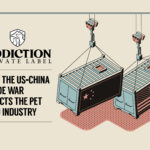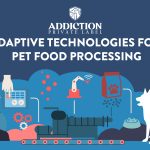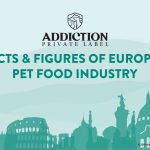Private label is on the rise. If you are one of those who see the business potential of having their own private label, here are just some of the important things to know before getting into the business.
1. Flexibility
Many private label stores are afforded the flexibility to innovate their products. This happens as they are able to monitor the competition closely. Upgrading the content or ingredients of their private label happens every three to five years just to be in tune with their customers’ needs and the demands of the market. As an independent retailer, you can afford to be flexible as compared to big brands because of budgetary considerations.
2. Counterfeits
Knock-offs, bootlegs…these are terms we are familiar with. Counterfeit products abound, whether you’re distributing pet food or clothing. Make sure that you have vetted your supply chain. Do your due diligence when checking out your private label manufacturer’s reputation in the market. Does it have a good image in the market? Does it have a history of leaking product information to counterfeiters? Make sure that your supply chain is trustworthy.
3. Rules and regulations
While some suppliers may know this, it is also important that you know what you’re getting into. If you’re set on having a private label pet food, say in China, you should know their rules and regulations. Not as extensive a knowledge as your chosen private label manufacturer, but just enough that you are aware you need their expertise and experience.
Finding a private label pet food manufacturer that can help you set up in China is a step in the right direction. Check out how Addiction Foods can help you and your brand.
4. Pricing
Because private label is currently enjoying a resurgence across all categories, you will find many private labels competing with one another in the same category, carrying almost the same price points. For example, in the food supplements category alone, you see more than a handful of different products having the same content, priced competitively. The same goes for the pet food category—whether it’s cat food or dog food.
Depending on which subcategory your private pet food will be, depending on its ingredients, depending on a lot of things, your pricing structure should take all of these into consideration. Knowing which price bracket your product will be is important.
5. Phenomenal growth
It’s been projected that the U.S. pet food industry will have a very impressive growth by 2022 at $30 billion from $24.6 billion in 2016. “Private label has long been a huge part of the pet market and private label sales of pet food and supplies combined for nearly $3 billion in sales in 2017, with pet food comprising about three-fifths of the total. Private label is also strong in pet specialty big boxes and independents, as well as non-traditional channels looking to capitalize on the higher margins and product exclusivity,” according to petfoodprocessing.net.
Get to know more about the private label industry:
https://www.fooddive.com/news/hitting-refresh-grocers-update-their-store-brands-to-stay-top-of-mind-with/518131/
https://www.business.com/articles/six-essential-private-label-business-tips-for-newbies/
https://www.petfoodindustry.com/articles/6224-us-pet-food-market-forecast-at-us30-billion-by-2022
https://www.petfoodprocessing.net/articles/12825-state-of-the-us-pet-food-and-treat-industry
Start your journey with Addiction Foods
Follow us on LinkedIn.







